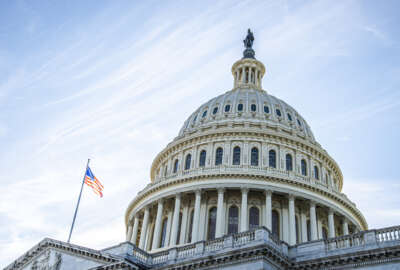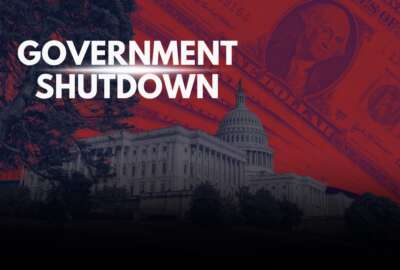Sick Leave Debate Makes Some Feds Sick
Is the current congressional debate over sick leave making you sick? Senior Correspondent Mike Causey says some people think the use-it-or-lose it system should be...
(Editor’s Note: The Mike Causey page is getting a facelift. Check back soon for an update!)
The congressional debate over use-it-or-lose-it sick leave is making some current and former feds ill.
The situation is this:
Roughly 20 percent of the people currently working for Uncle Sam are under the old Civil Service Retirement System. It permits them to accumulate unlimited amounts of sick leave and, when they are otherwise eligible to retire, to credit that time (6 months, a year, two years, whatever) toward their total federal service time. Result: A bigger starting annuity (about 2 percent more for each year of unused sick leave) that is indexed to inflation.
The vast majority of current feds, about 80 percent, came into government under the ‘new’ retirement plan: the Federal Employees Retirement System. FERS employees are not allowed to credit any unused sick leave toward retirement. As a result, the government says that many FERS workers burn up (use rather than lose) sick leave in their last year of service. The government claims it costs agencies about $68 million a year. We’ve dubbed it the FERs flu.
When it comes back—in September—the Senate will approve its version of the Defense Authorization bill. The House cleared its own plan before it went on summer vacation. It would give FERS employees the same incentive to save sick leave. The Senate version doesn’t. The issue—along with other differences—will be ironed out in a Senate-House conference. Odds are against the sick leave credit plan emerging from the conference. But it could.
Most readers and listeners we’ve heard from on the subject have been FERS employees who think it’s unfair to deny them a benefit enjoyed by their older, CSRS, office mates. But here’s a comment from a fed who says that sick leave is for when you are sick, and it’s the equivalent of having short-term disability insurance. He writes:
“I am a retired CSRS employee” (2.5 years now)
“Federal employees, whether CSRS or FERS, should consider banking their sick leave as the cheapest job insurance available. During my early years, I never used sick leave for minor injuries or illnesses. I even used annual leave on occasion when I could have used the sick leave. As I entered middle age, my own operations and deaths of my wife and siblings allowed me to use some of my sick leave without worry about where money would be coming in. Then, when I retired, I got a nice few months added to my years of service.”
“I had several colleagues who never once used sick leave and retired with more than a year added to their service. I also had several colleagues who used every day of sick leave as they earned them. I am not sure what the break even point is for whether the government benefits when sick leave is used by CSRS employees versus when it is added to years service for pensions. However, I know I very much appreciated being able to accumulate sick leave in case of an emergency. I even more appreciated that it was added to the service time, but would not have been traumatized if it had just been lost, either.”
“We had about 2000 employees in our office nationwide and it often amazed me how often we would get requests for donations of annual leave on behalf of employees who had relatively minor health issues who simply used every sick day as they earned them. The office pipeline of information quickly informed us when the person making the request was someone who abused sick leave or not and the amounts of leave donations were in accordance with their histories.” Roger Lussier
Nearly Useless Factoid
by Emily Jarvis
Elephants have been known to remain standing after they die.
To reach me: mcausey@federalnewsradio.com
Copyright © 2024 Federal News Network. All rights reserved. This website is not intended for users located within the European Economic Area.





